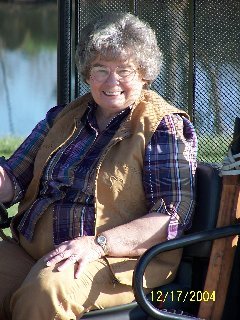A beating of tom toms (plastic buckets turned upside down) filled the St. John’s School gymnasium, where a single row of youngsters circled the gym wall and sat cross legged this afternoon.
Joe Crabb had enlisted Dr. Vann\ Burgess and me to help him present information to these children (kindergarten through eighth grade) who had been studying about the Trail of Tears.
After we arrived, the teachers called all the children together to sit on the floor in front of us and warned them to be quiet and encouraged them to be polite. They certainly were.
Joe told them about the arrival of probably 11,000 or more Cherokee to our end of the state, where more died on the Trail of Tears than any other segment. Why? Because of the unusual intensely cold winter that trapped the travelers between the two border rivers that meet at the tip of Illinois at Cairo.
On a large map of Pope County, Joe showed the kids where he lived and told how the Cherokee used a creek’s rock bottom on his farm to ford Sugar Creek.
In good weather, as Joe also explained, it took days to move a thousand people load by load across a river. With the record-breaking bad weather, such movement became impossible until the chunks of ice floating downstream finally diminished enough to allow the ferries to start their slow journey.
Thus, the detachments, each with around thousand people, bumped into each other’s camp sites and piled up. Food became more and more scarce as game disappeared and rations were used up.
Many families passed down the story to their children of sitting on their front porches and watching hundreds of Cherokee pass in front of them day after day. One such family was that of Theophilus Scott of rural Pope County. His great great grandson Dr. Burgess was a tiny child when his grandfather died at 96. However, by then younger family members knew the story and passed it on to him. Professor Emerius of Education from the University of San Francisco, Burgess shared a time line with the children and reviewed that early 19th century history with them as he told about his family and his own exploration of nearby Allen's Spring.
Because they were stranded, there was more time and need for interaction between the curious often illiterate white pioneers living here and the bedraggled, dispirited and depressed Indians sleeping on the frozen ground with their one blanket if it had not already been destroyed by the mountainous terrain, rough creek rocks, or snagging thorns. Moccasins too had often worn out, and bare feet bled on the snow.
Local men who had grist mills ground corn meal for the Cherokees. Some traded pumpkin pies for the Indians’ ration of coffee. Some whites took babes from their mothers’ arms to keep the infants from freezing. These local families promised to nurse them back to health and raise them as their own. And they did. When possible, they often kept the Cherokee ancestry a secret to help the child avoid the terrible prejudice against the people with whom the whites had broken treaties as they stole more and more of their land. Some whites, however, helped when they could and even let the Cherokee cut down their woods in order to have fires for warmth.
As Joe finished up the travel through Pope County, young inquiring minds started waving hands wanting their questions answered about what they had heard. They asked good questions and Joe gave good answers.
He had asked me to review briefly the trek through Johnson and Union Counties and ultimately over the Mississippi River into Missouri. He wanted me to finish with the story of Priscilla, the Hollyhock Girl of Mulkeytown, freed from slavery by Brazilla Silkwood who arranged her release from the Cherokee who had purchased her, we think, from the Borders plantation in Northern Georgia.
I was thrilled to be able to pass around a copy of the recently found photograph of Priscilla with the Harrison family that Betty Baker had received from her grandmother. Then it was dismissal time and parents were in the parking lot to pick up their children.
I hope some remembered to ask their parent if they could stay up to watch the third segment of We Shall Remain, which I am now stopping writing to watch. Next week we will learn about Geronimo.
Yorktown Virginia
-
On Sunday, after our museum day, Wesley and I drove to Yorktown Va. I am
so glad we ventured out looking for a waterfront on this trip. I had to
mercha...
5 years ago











